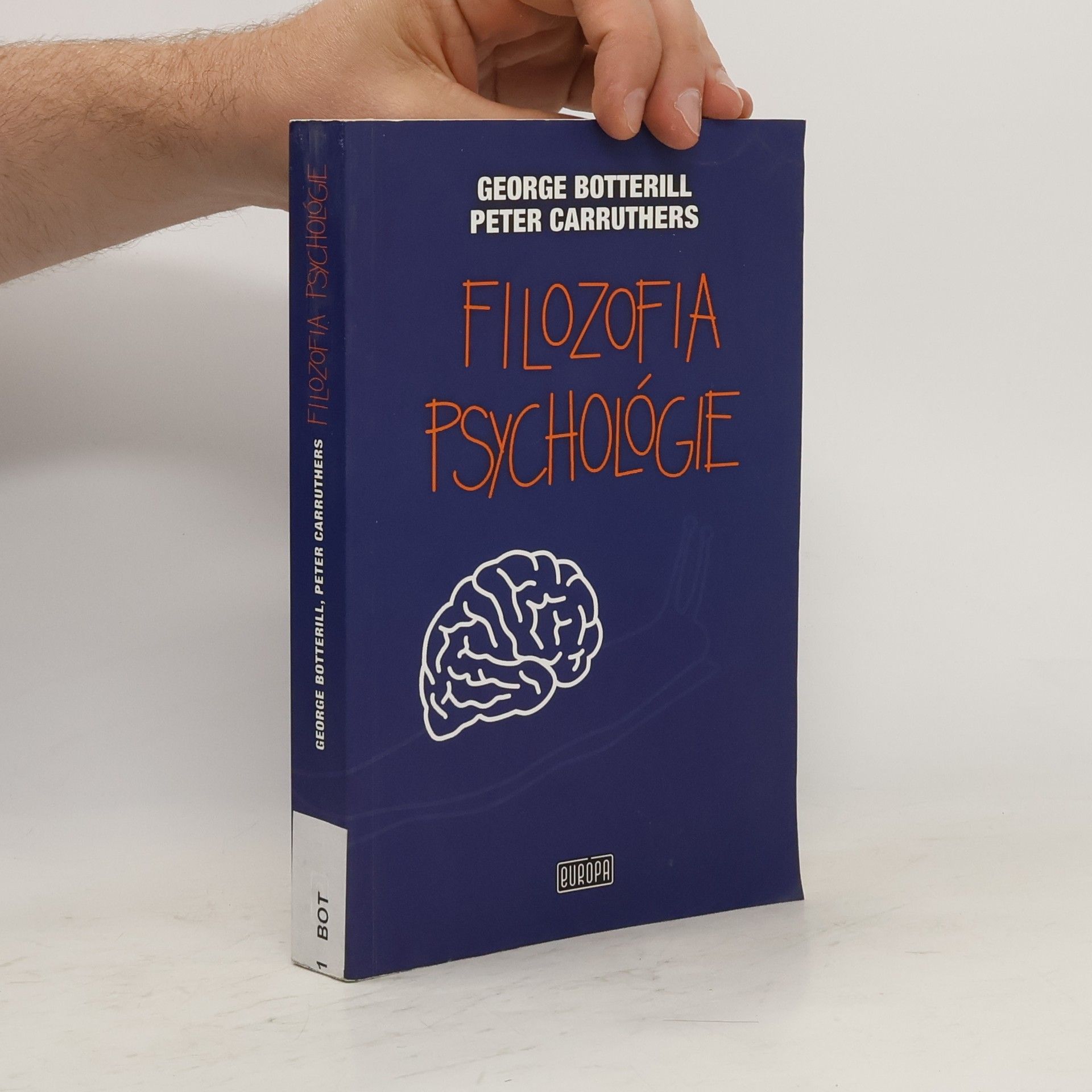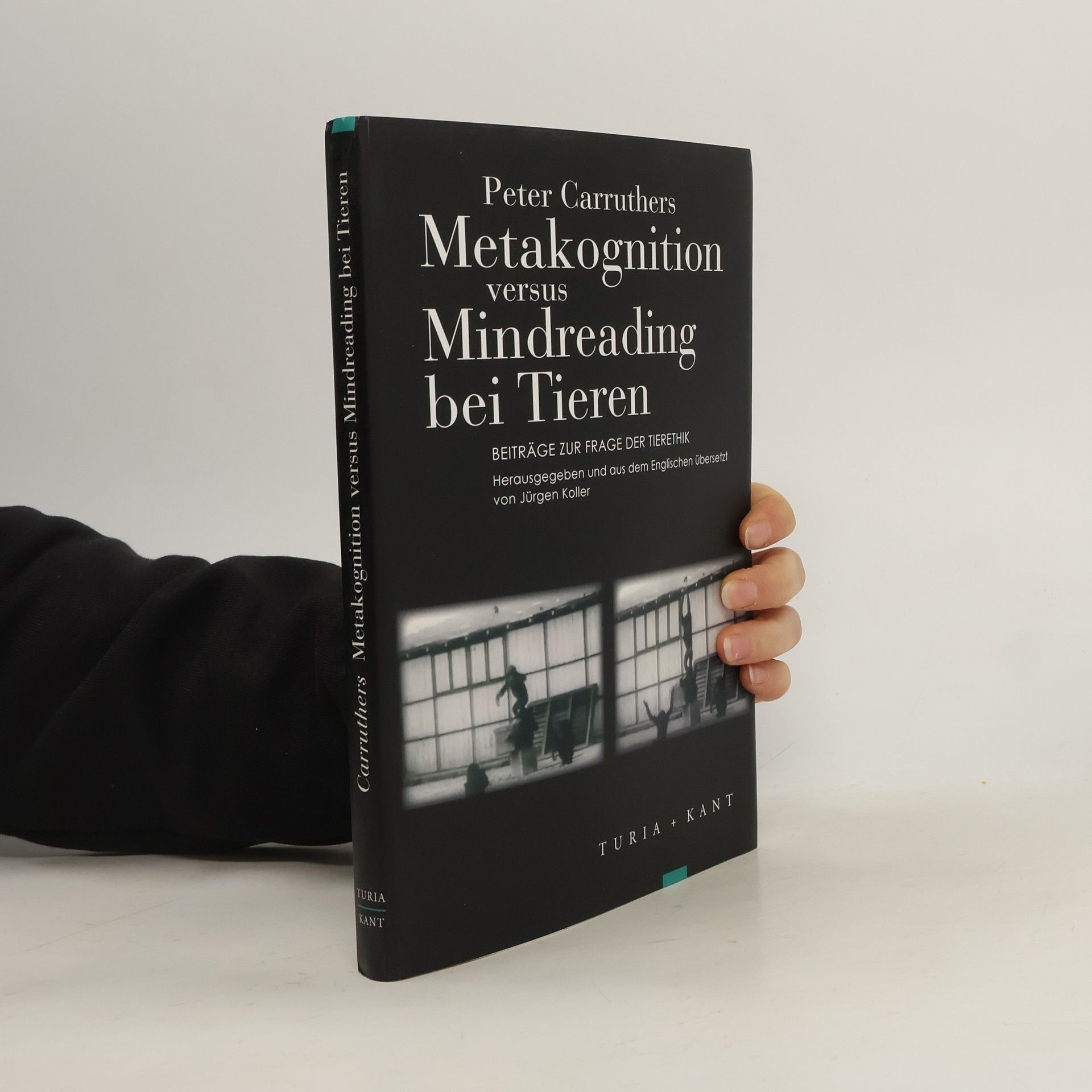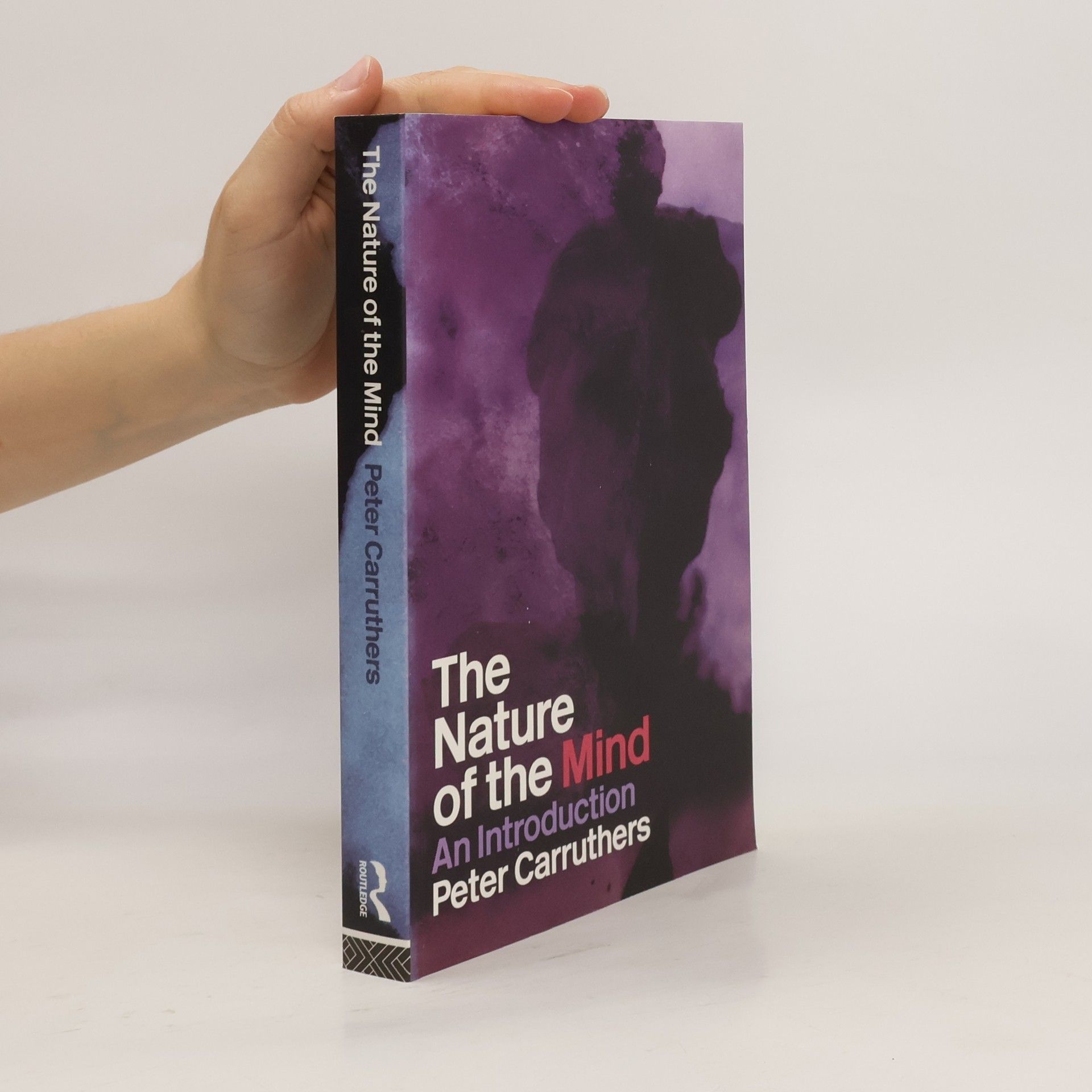Human Motives shows how the sciences of decision and affect support a form motivational hedonism (the theory that everything we do is done in pursuit of pleasure and to avoid pain and displeasure) while making room for both genuine altruism and intrinsic motives of duty.
Peter Carruthers Book order (chronological)





Human and Animal Minds
- 240 pages
- 9 hours of reading
Claims about consciousness in animals are often made in support of their moral standing. Peter Carruthers argues that there is no fact of the matter about animal consciousness and it is of no scientific or ethical significance. Sympathy for an animal can be grounded in its mental states, but should not rely on assumptions about its consciousness.
Metakognition versus Mindreading bei Tieren
Beiträge zur Frage der Tierethik
- 221 pages
- 8 hours of reading
Dieser Sammelband präsentiert die Forschung des amerikanischen Philosophen Peter Carruthers. Er umfasst acht Beiträge zu Fragen tierlicher Mentalität, die ein breites Spektrum an Themen und Fragekomplexen bedienen. So etwa: Welchen moralischen Status besitzen nicht-menschliche Tiere? Besitzen nicht-menschliche Tiere einen Geist? Durchleben nicht-menschliche Tiere phänomenal bewusste Erfahrungen? Oder auch: Sind Metakognition und Gedankenlesen dem Menschen vorbehaltene Phänomene? Alle Beiträge wurden von führenden Vertretern in den Kognitionswissenschaften, der philosophischen Psychologie und der Philosophie des Geistes umfassend rezipiert und liegen hier nun erstmalig in deutscher Übersetzung vor.
Filozofia psychológie
- 285 pages
- 10 hours of reading
Filozofia psychológie je originálnou a prístupnou analýzou vzťahu medzi "ľudovou" psychológiou - metódou, ktorú používame v každodennom živote, keď sa pokúšame rozumieť iným ľuďom i sebe - a kognitívnou psychológiou, ktorá sa pokúša vysvetliť, prečo táto metóda funguje a ako funguje. Kniha je nielen prehľadom zásadných diskusií o psychológii a filozofii ľudskej mysle, ale ponúka aj nové pohľady, ktoré menia naše predstavy o sebe a o našom mieste v spoločnosti. Poskytuje prehľadný a zrozumiteľný súhrn základných poznatkov z tejto zaujímavej a rýchlo sa rozvíjajúcej oblasti, kde sa prelínajú filozofia, psychológia, kognitívna veda, informatika a neuroveda. George Botterill prednáša filozofiu na Univerzite v Sheffielde vo Veľkej Británii. Publikoval množstvo článkov z oblasti filozofie mysle, filozofie vedy a filozofie psychológie. Peter Carruthers je profesorom filozofie na Univerzite v Marylande a jedným z kľúčových autorov vo filozofii mysle. Z jeho mnohých kníh o filozofii mysle a filozofii psychológie sú najvýznamnejšími The Architecture of the Mind (Oxford University Press, 2006), Consciousnes (Oxford University Press, 2005), The Nature of the Mind (Routledge, 2004), Phenomenal Consciousness, (Cambridge University Press), Language, Thought and Consciousness, (Cambridge University Press, 1996).
Offering a thorough introduction to the philosophy of mind, this book examines key themes and conflicting positions within the field. It situates various arguments in their historical context, making it accessible for those without prior knowledge. Clearly articulated and methodically structured, it serves as an excellent resource for undergraduate courses, ensuring that newcomers can engage with complex ideas in a comprehensible manner.